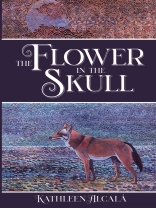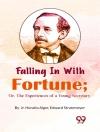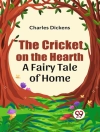A riveting novel from acclaimed author Kathleen Alcalá, this second edition of The Flower in the Skull, from Raven Chronicles Press, begins in the Sonoran Desert in the late 19th century, where an Ópata village is attacked by Mexican soldiers. Her family scattered, Concha makes her way to Tucson, where the stories she tells her daughter lead to Shelly-a troubled Latina in modern-day Los Angeles, increasingly fascinated by her ancestry. A powerful tale of heritage, loss, and acculturation, Alcalá spins her most lyrical and moving work yet.
The Flower in the Skull stands perfectly apart even as it continues the epic begun with Spirits of the Ordinary.
The second part of a planned trilogy that began with Spirits of the Ordinary (1997), The Flower in the Skull spans more than a century in offering a view of three women linked by Indian blood and their dreams, and seared by the violent transgressions of men. Childhood comforts in her Ópata village in Sonoran Mexico cease for Concha when her father is seized by Mexican soldiers and never seen again. First abandoning home with the remainder of her family, then herself abandoned by her mother, Concha walks in a daze across the desert to Tucson, where she’s taken in as a nanny by a prospering Mexican family. A measure of peace returns to her. But when she’s raped by an Anglo and bears his child, nothing can ever be the same. A brief marriage to the family doctor fails to produce more children, so her husband abandons her for someone else, leaving Concha and daughter Rosa to fend for themselves.
Over the years, Rosa picks up the burden when her mother grows too weak to continue the dawn-to-dusk housecleaning work that has sustained them, but then Rosa catches the eye of a young minister and receives Concha’s blessing to marry him just before Concha dies.
Busy starting her own family and keeping her own house, Rosa still wonders about her mother’s past-Ópata and the father she never knew. Two generations forward, Shelly, an editorial assistant for an L.A. publisher, jumps at the chance to escape her stalking, harassing boss by going on a research trip to Tucson, where she finds not only a mystery involving her mother’s family and her people in a broader sense, but also the will to survive the horror waiting for her when she returns to Los Angeles.
Like her previous novel Spirits of the Ordinary, The Flower in the Skull is set along the Mexican/U.S. border and deals with three generations of Ópata Indian women–ranging from the turn of the century to the present day. All are based on members of Kathleen’s family, the book recreating both the magic and hard work of survival. The story is heartbreaking in places, but the prose is even more gorgeous, and there is a richness to Alcalá’s characterization and settings that invite re-reading passages, simply to re-experience their resonance.
This book is not to be missed, especially by students of Native American Studies, border studies, and American history.
Jadual kandungan
When I wrote The Flower in the Skull, I was afraid it would be more of a memorial to my ancestors than the revealing / revelation of a living people. I grew up knowing we were part Indian on my mother’s side, but nothing more. ‘Well, ‘ I thought as I concluded work on the book, ‘at least I tried to document who we are, why the history of a people can be so wonderful and terrible at the same time.’ Then I moved on to my next book.
The internet was rapidly evolving at this time, and Qui Qui Felix, a woman who maintained a Geocities website devoted to the Ópata, contacted me. I was thrilled! With just a few resources at her disposal, she had painstakingly accumulated images, photos, videos, and art spanning hundreds of years about the Ópata on this free website that was popular in the 90s. She arranged to visit me so that she could read and scan the small library I had put together over the years.
Then Ricardo Tánori, a retired psychologist living in Baja, California, wrote to say that he hosted a Yahoo!MX chat group dedicated to the Ópata, and invited me to join. There were not too many people in the Spanish language group at first, maybe twenty-five or so posting sporadically. But still, it felt like a miracle, people who knew the old stories, and even some of the old languages.
The Flower in the Skull is a work of historical fiction based on the life of my great-grandmother, Pastora Curiel. The second volume in a trilogy, it dovetails with the other two novels to present her story from a point of view the characters in Spirits of the Ordinary and Treasures in Heaven would struggle to understand. Pieced together over many years, tracing the names that were not named, the paternity never discussed, The Flower in the Skull traces my lines of descent back to the village where my great-grandmother was born, and from which she traveled a long, long way.
Today, there are over 300 people who identify as Ópata and participate in online discussions. There is a smaller group working on legal recognition from both the United States and Mexico, and, of course, many more who live and work on both sides of the border. You are welcome to look at our website at https://opatanation.org.
In 2022 I visited the Rio Sonora valley and the Banámichi River of northeastern Mexico, where villages located along the river valleys continue to tell and retell stories that illuminate the past. I also met up with Cristina Murrieta, who traveled from the next valley over where she is the official story keeper for the town of Nácori Chico. Like me an Ópata descendant, she is working hard to document the past, preserving it through accounts of song, dance, weaving, pottery, and food. She has published at least two books of myths and stories from the area. Soldiers have been replaced by drug dealers, and ranchers by distillers of mescal, but the beauty of our desert culture continues to shine through our people.
This book is a simple recreation of one of those journeys. If you read this and see reflections of your own family, then this book has served its purpose.
-Kathleen Alcalá
Bainbridge Island, Washington
October 13, 2022
Mengenai Pengarang
Kathleen Alcalá was born in Compton, California, to Mexican parents, and grew up in San Bernardino. Both a graduate of and instructor in the Clarion West Science Fiction and Fantasy Program, her work embraces both traditional and innovative storytelling techniques. She is the author of six award-winning books that include a collection of stories, three novels, a book of essays, and The Deepest Roots: Finding Food and Community on a Pacific Northwest Island. With Norma E. Cantú, Kathleen is the co-editor of Weeping Women: La Llorona’s Presence in Modern Latinx and Chicanx Lore. A member of the Ópata Nation, Kathleen makes her home on Suquamish territory.












